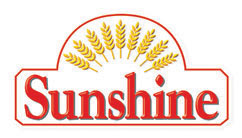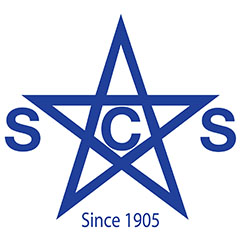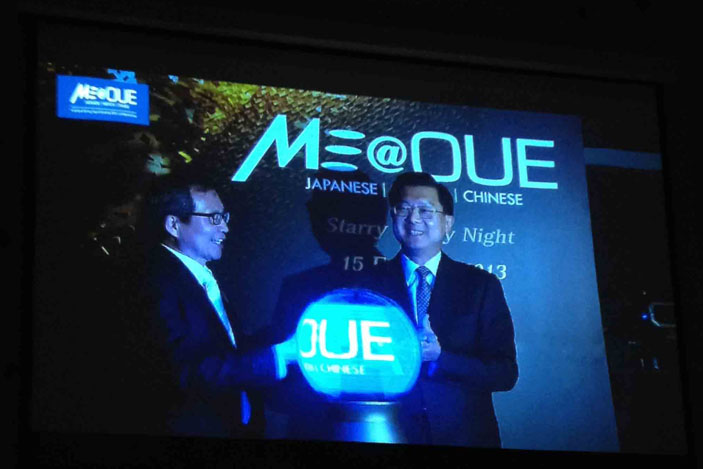HAVING roused the “sleepy” Overseas Union Enterprises Ltd, its Executive Chairman, Dr Stephen Riady is pushing the Singapore brand to achieve more and fulfil its potential. Dr Riady’s father founded the Lippo Group in Indonesia which has over the decades spread its reach geographically to include Singapore, Hong Kong, China and the US, and in various industries ranging from property to retail, satellite to consumer products, and much more. Under the Lippo umbrella, Dr Riady’s activities have grown to include OUE and Auric Pacific, which includes popular brands like Delifrance and Sunshine.
Following the recent bidding attempt to secure Fraser & Neave for S$13.75 billion, Dr Riady has been beset with business offers from around the globe.
You might also want to read:
Walking Away From The Biggest Deal
Begone 2016! A Year Of Opportunity
STORM: Would OUE be expanding its business in new directions?
DR STEPHEN RIADY: As a group we are in 16 cities, and quite diversified already. From property — hotels, hospitality, residential, office, retail, industrial — to healthcare, media, satellite communications, retail. I see that all this will grow substantially in the next five years. Whether you’re in Europe or the US, investors always ask you, about your plan in Asia. Whether you’re listed discount retailer Walmart or financial services company Blackstone, investors want to know what is the plan for Asia, since this is where the main growth will be coming from.
If you say you don’t have an Asia plan, you will be penalised.
Even if the market is already large, like in America, where 1% growth is huge, somehow people have the perception that the growth in Asia for the next 10 years will be more rewarding. We happen to be based in Asia. I’m from Indonesia. We will benefit from all this growth. Not just property growth, but all consumer plays will see a boom in Asia.
China has hundreds of cities, and many of their mayors want to talk to me. I cannot go to all these cities. Maybe I can visit only 20 cities. So, I ask these mayors why I should talk to them. To convince me that I should visit their city. What benefits do they have to offer that I cannot get from the other cities. Even if we don’t do business, at least I learn something about their city.
In Singapore and Malaysia, Auric Pacific, which lists among its brands Delifrance, Sunshine and Food Junction, is a food consumer player that will be highly sought after by foreign investors from now. Hence, you’ll see a tremendous growth for this company.
We want to expand the product ranges. For example why should Sunshine sell only bread? Or SCS, sell only butter? The product range should be widened and we should create more private labels. At Sunshine we are doing a lot of distribution of other people’s products, which enjoys a lower margin. If you distribute more of your own brands, the margin can be 70% or 80%. Why don’t we focus on our own brands? Not just our existing products, but also in areas where the market is big, like confectionery, chocolates, potato chips. The market is huge in those areas. If we can get 1% market share in big cities, that’s already huge.
Auric Pacific is about to expand into Indonesia using our existing distribution network. We have over 20 million regular customers there. We are going to China. One of the biggest problems in China is food safety. People just don’t trust China products. Singapore brands on the other hand have such a good reputation. Why don’t we expand our Singapore brand into China? We are intending to set up a Sunshine factory in China. That’s a big market. In Singapore, Sunshine is a household name, but we have such big markets in China. There’s no reason not to go to China. There are people who say Chinese people don’t eat bread, but I don’t think that’s true.
In the past, Food Junction was losing location to competitors because we were not able to increase the number of seats at our food courts. I went to many Food Junctions and realised the design is wrong. They have a garden theme, for instance, where the wooden seats are bulky with trees in between. That is wasted space. The standard must be like McDonalds — the seats are not too big nor too small. With better use of space, we increased seating by 20%. With increased productivity, I can be more competitive in paying higher rent.
The stalls that are not making money, you have to change them. Take Delifrance, for example. After our revamp the food is good again. The food is back to the original standards. Long time ago Delifrance was good, then they changed, using cheaper, lower-quality products. For instance, they used to have French butter, but replaced it with cheaper butter. I said, if you want to revamp, then change things back to when they were good. So we switched back to French butter, which is more expensive, but now the taste is better. When you have Delifrance at the food court you are guaranteed profitability. In a restaurant you must have space for tables and chairs. If you go into a food court you don’t have to pay for the tables and chairs. All you need is a small stall, so you maximise selling your product. But you have to add more products. You must make use of even the wall space — hang things where people can get potato chips or chocolates. That increases productivity.
At Sunshine bakery, we were facing 23% returns. For every 100 loaves you send to the supermarket, you have to take back 23 the next day, and throw them away. In the last six months we reduced the returns from 23% to 15%. That’s a big saving. We used to distribute bread to 2,500 outlets — supermarkets as well as mom and pop shops. Many of them are so small, they take about 8-10 loaves and the next day they return three loaves. How do you make money when you factor in delivery cost and wastage. We decided to stop delivering to the lowest-performing 10% of these shops. If they want to continue selling Sunshine bread, they would have to come and collect the bread, with a no returns policy. Just by doing this, you are reducing the returns.
It’s all about rationalising the business.
 Sunshine for the last 10 years costs $1.20 a loaf, and you get a free pack of hotdog buns which costs $1. This didn’t make sense to me.
Sunshine for the last 10 years costs $1.20 a loaf, and you get a free pack of hotdog buns which costs $1. This didn’t make sense to me.
The belief was that this may help to grab market share from competitors like Gardenia. But Gardenia is also doing the same thing. I feel if somebody has been eating your bread for 20 years, it’s a difficult habit to change. So I decided to stop giving away the hotdog buns. After three months, our sales didn’t drop. Seeing this, our competitor has followed us. We’ve become the trendsetter.
 Even with 15% returns, we can still make better use of our products. At Senoko, where the Sunshine factory is located, I see a lot of bread left to the birds. I said we have to try and do something with this bread instead of throwing it away. Now we are making cookies out of returned bread. Cookies can be packaged nicely and exported, and have a longer shelf life of nine months. And the margin with our own brand is 70%.
Even with 15% returns, we can still make better use of our products. At Senoko, where the Sunshine factory is located, I see a lot of bread left to the birds. I said we have to try and do something with this bread instead of throwing it away. Now we are making cookies out of returned bread. Cookies can be packaged nicely and exported, and have a longer shelf life of nine months. And the margin with our own brand is 70%.
There are too many things that can be done to improve the business. I just don’t have the people to do it. I have the ideas but I can’t do it myself. I have my priorities – property, Meritus Hotels & Resorts, One Raffles Place, plus growing the business in the region. Now that Auric Pacifc has one of the best CEOs, she’ll take it in the next five years to a star performing company.
STORM: What is the status of Meritus Hotels & Resorts, and what are your ongoing plans?
RIADY: When we acquired it in 2006, I wanted to make the Mandarin Orchard the flagship of Meritus Hotels & Resorts. We then created Mandarin Gallery. Earnings have gone up five times since 2006, and there’s still room to improve. My rent in Mandarin Gallery is still on the low side and there’s time to adjust upwards for the next few years. We want to integrate Mandarin Gallery as part of the hotel. The next step is to let customers go down and sign purchases to the room. The concierge service will deliver it to their rooms. We will also promote the restaurants and shops in the Mandarin Orchard hotel rooms. As a brand, our next step is to go out and get more hotel management companies.
STORM: There’s been a lot of talk about selling Meritus.
RIADY: There are many potential buyers out there. The good thing about OUE is that all our assets are in prime locations, whether it’s Mandarin Orchard, One Raffles Place or the former DBS building on Shenton Way.
When the revamp of the former DBS building is completed, by 2014, it will look very different. It will be like Mandarin Gallery. Many of my tenants in Mandarin Gallery already want to take space there. I presented the plans to some investors, and they asked if they could buy 50% of the building. I think I’d better wait. When I finish I can get an even better valuation. The building doesn’t have a name now, and I do want to build the OUE branding. It’s been sleepy for many years, but that is changing now with the quality developments we have. We will call it OUE Shenton. As for One Raffles Place — I’m hesitating because the present name is very good — but it could become OUE Raffles. We are thinking of creating a holding company, OUE Hospitality, for the hotels and restaurants.

My restaurant, on the 19th floor of OUE Bayfront, is ME@OUE. The restaurant brings together Japanese, French and Chinese cuisines and is operated in collaboration with MediaCorp.
Now with the F&N bidding out of the way, I’m happy that the OUE name has become quite well known. It’s the kind of publicity you couldn’t have bought. My PR team reckons that even if I’d spent $100 million I may not have enjoyed this impact —three months in the papers all the way in Europe and US. It was followed like a TV series, with people wondering what the next twist was going to be.
STORM: What other countries in the region are you looking at investing in?
RIADY: We try to be more focused. Where we are at the moment, there is a lot of growth potential. Auric Pacific is a lot of work over the next three years. We will look into exporting to Vietnam and Myanmar, which are relatively big countries with large populations. We haven’t done it yet. My footprint for consumer play, my priority would be China and Indonesia. If you are in the consumer play, the moment you announce that you are in Indonesia and China and you have distribution and production, do you know how much value people put in your company?
So, there’s too much on my plate as it is. I don’t have to worry about Myanmar and so on. Definitely one day we will do something; whether it’s in a year or three years. It’s not a top priority now.
STORM: Was this the outcome you anticipated a decade ago, when you became more active in Singapore?
RIADY: I know I want to do more in Singapore, because I studied here when I was young. So I always liked Singapore and I wanted to come back. But how big could I become? If I can be in the top 30 or top 40 I’m pretty happy. To be in the top three in one sector, that’s my dream. It’s not easy to be in the top three in any sector of any country.
In the property market as a developer, analysts already put us in the top 10. In the CBD — we are in the top three or four now. When I first entered the market, I just wanted to try my best.
Grab opportunities. If you define yourself too narrowly you are losing out on opportunities. That is the problem with many of my friends, they limit themselves. If the deal is $1 billion, they back off, saying it’s too big. They don’t even want to know what it’s about. For me, it doesn’t matter. I don’t even ask you how many billion dollars it is. First, tell me what it is.
We registered interest in some American companies and they invited us to their head office to meet over lunch in their penthouse office suites. It was a very nice experience. In the end we didn’t do business with them, but I’ve dined with them and learned about their business. If I’m going to invest in a business I need to know what it is about.
STORM: Does money factor prominently in your deal making?
RIADY: Don’t worry about money. Most people are reluctant to try something because it seems too big. Maybe if it’s $20 million they are comfortable, but if it’s $500 million or a $1billion it’s a lot of money and they don’t even consider it. If the deal is good, I will go and talk to banks and investors. You can talk to many people to convince them it’s a good deal. That’s how you make money. I do a lot of deals like this, especially when I started out. I started very small. I went to a bank which offered me $500,000 loan. I thought it was too small. At least you must give me $5 million. A lot of people will say if you don’t give me $5 million I don’t want it. So they end up not doing anything. When a bank doesn’t have any experience with you, they will extend you a lower amount. If you’re proud and you say you won’t take it, that’s an attitude thing. I don’t do that. I tell my colleagues, if you want $5 million, but the bank will only give you $500,000 then find 10 banks. It’s the same $5 million. You use it first, and after you’ve used it up, you talk to the bank again. You say you need more funds because you want to grow your business.
You have to take it a step at a time. Forget about the result. I never worry about my result. The process is more important, because it teaches you more.
When I talk to the NUS students (The Lippo Group donated $21 million to the NUS Business School which is housed in the Mochtar Riady Building, named after Dr Riady’s father) I often hear about how they don’t have money to start a project. I explain that you don’t need money…you need ideas. And you need a change in attitude. Just learn, and money will follow if you have a good idea.
STORM: How has Singapore changed you?
RIADY: It has taught me to be patient. You cannot take shortcuts. One example, when I applied for my permanent residence in December 2012, I had to go through the same process as anyone else. I had to prepare the documents, go to the Internet and get a queue number. Then I had to get a number for the interview.
I know I’m qualified. I employ more than 5,000 people in Singapore. I have lived here 10 years. I pay my taxes — I believe more than the average Singaporean. I do my part in terms of contributing to Singapore.
When I meet a lot of people they say, oh you have no problem getting PR, but in other countries I expect that I don’t need to line up. But here you still have to go through the process.
After the interview, where they verified all the documents and asked me about my plans, I expected that maybe in two or three weeks I would get my PR. The lady that interviewed me said, “Okay, please wait…we’ll let you know in six months.”
That’s Singapore. But I think Singapore is unique. You don’t see this in many countries in Asia. I see a desire by the government to try to be fair to everyone.
So we have to be patient.
This article was originally published in STORM in February 2013.
Main Image: QW, STORM





















